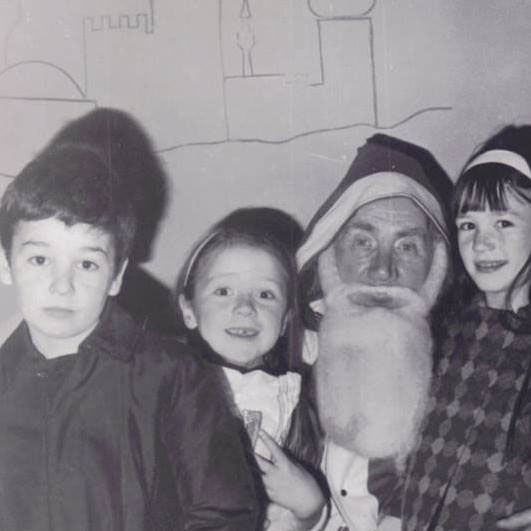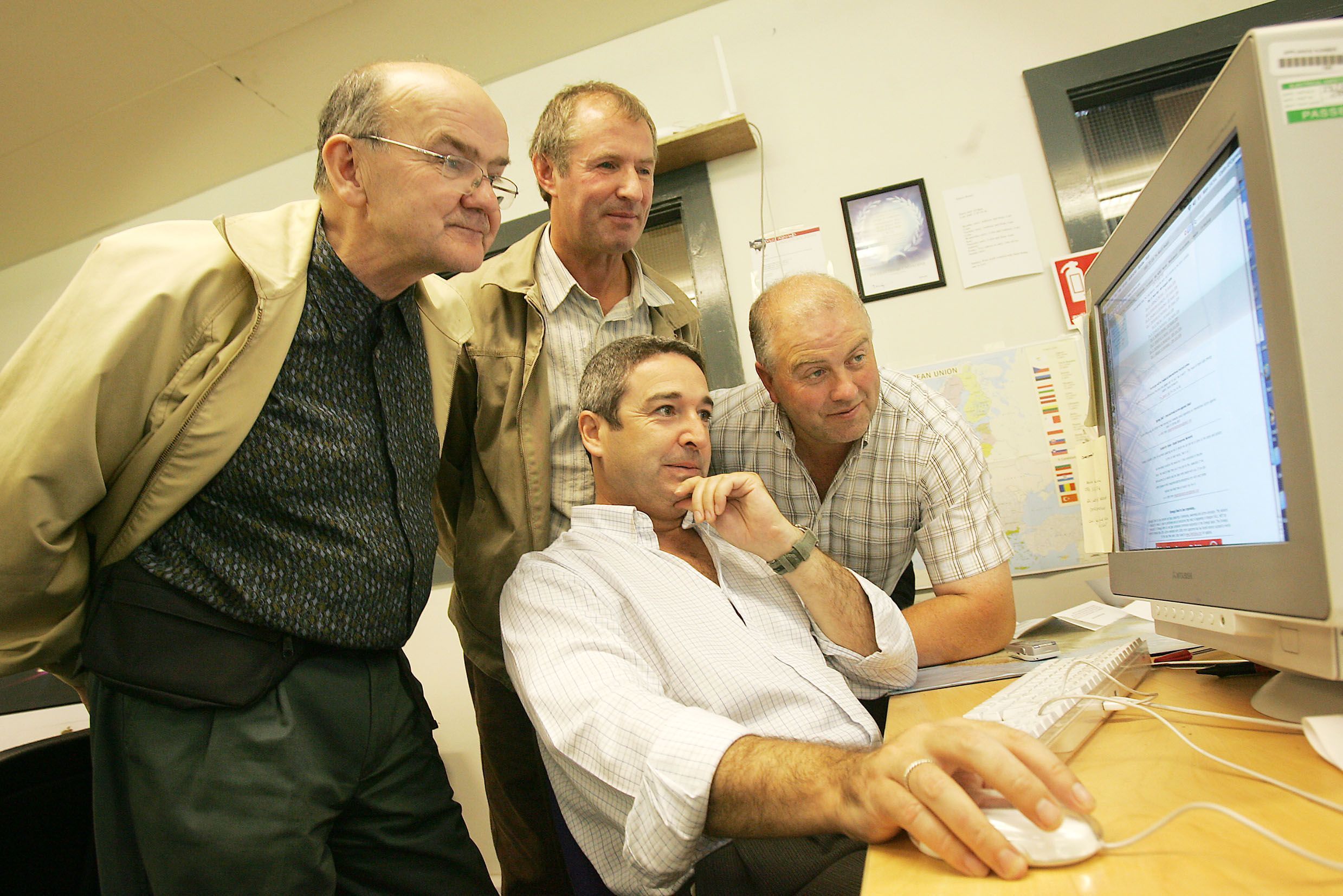IN my memory, the streets of West Belfast were pretty grim in the autumn and winter of 1972. Smoke from bonfires and barricades, as well as the innumerable, ever-burning coal fires, filled your nose and lungs, permeated your clothes and limited your vision on those grey days that rarely saw the gloom lift even during the short daylight hours.
Add to that the constant sense of danger as armoured cars rumbled past, soldiers patrolled and the occasional crack of gunfire, blast bombs and more distant booms of bigger explosions and it was a unique time – that hopefully will never return. As a 10-year-old boy living in the middle of Andersonstown, some of this was thrilling and exciting, but the underlying sense was one of dread and worry.
We as a family were living with my grandmother in North Link in the centre of Andersonstown after being forced to sell our house nearby after my father’s rushed departure for Australia after his car and business had been destroyed The plan was that he would try to build a new career and we would follow him out, but it had been two years and so far, no sign of movement from the Australian Immigration authorities.
There were 10 of us squeezed in, making up three generations, my mum and the six of us sleeping in one room – though I occasionally bagged the couch in the living room to have some personal space. We were constantly raided by the army, usually in the middle of the night, so life was anything but dull.
Colin, left, aged nine with sisters Liese and Maggie with Santa at Robinson and Cleaver. The family emigrated a year later
One bonus was that I had a lot of freedom as my mother struggled to cope with working full time and looking after the younger ones. My best mate of the time Marty Kennedy was in a similar situation having been ‘evacuated’ from the Lower Falls to live with his granny in Andytown.
To that end we spent a lot of time wandering the streets after school, with little else to do and not a lot to do it with. Marty was a livewire, always looking for something new to get into, and one day he told me that this new local paper was looking for kids to deliver door-to-door and you would be paid per copy delivered or sold.
This sounded like a dream job for us, as back then any money was hard to come by, so we decided to have a go. One day after school we headed down to the paper’s offices which, if memory serves, was in a dimly-lit room above Owenvarragh Shops on the Andersonstown Road.
For some reason Marty chickened out of going in, but as I’d come that far I went on into what seemed to be an empty room. As the door clunked closed behind me, I heard a gruff voice asking who was there, followed by the appearance of a burly man from behind a partition who eyed me up and down shrewdly. This I learned later was the legendary Basil McLaughlin.
He explained the job, told me to go home and make sure my parents were happy with what I was doing and get a note to say so. Years later as a journalist I met Basil again and he was pretty much the same.
Again, he eyed me up and down and nodded. A man of few words, but who said all he needed to! Note duly produced, for several weeks I was at the office in the dark evenings to collect my allocation of papers and given a round of streets.
I arrived at front doors, usually greeted with some warmth as the paper was already being seen as an important part of the fabric of the area, and as a trusted and entertaining alternative from the official media that was viewed with healthy, and usually justified, suspicion.
There was local news, sport, social events, columns and above all, that wry sense of humour throughout, so typical of Belfast. Even the ads for various dances, bands and local businesses were scoured by eager eyes of all ages in every household and papers and articles passed between families.
Every paper was read and re-read cover to cover until the next edition came out. Some with notable family pictures would be saved for posterity, and all this for the princely sum of 5p, if I remember right.
Any of my extra copies could be sold to people passing, with many stopping you to ask for a paper, or hawked around the social clubs or few pubs, that were so exciting to go into. People were kind, would often tip, and it was a window into the lives of others that was fascinating.
Little did I know that this was my first foray into the world of newspapers and journalism that would later become my career from my late teens. My paperboy career only lasted a few weeks, as unexpectedly we got the word we were accepted into Australia, and very shortly after that we boarded a ferry to England, then a ship on to Australia, having Christmas on the boat and arriving Down Under in January the next year after a six-week voyage.
It was far from the end of my relationship with the paper though, as it went from strength to strength, becoming an intrinsic part of the community we had left behind.
My grandmother would post copies and cuttings out to Australia to keep us up to date with events big and small, that were read avidly by my desperately homesick mother and then the rest of us as exciting news from ‘home’, despite being weeks or even months out of date.
It’s hard to imagine in this age of instant visual communication how powerful these snippets of life were, but to us 12,000 miles away, it was the equivalent of the internet, compared to what news we got through any other media.
I continued to read the ATN through the years for many of the same reasons, and on returning to Ireland to work as a reporter over various times through the late 1980s and ‘90s, came to know some of the journalists as professional colleagues.
Later I was lucky enough to work alongside many of them in the Belfast Media Group, as first Deputy Editor and then Editor of Daily Ireland, as well as writing the odd piece for the paper itself.
The paper has marked my own close and wider family’s events, both happy and sad, for these 50 years, as it has with countless others. In many ways the history of the ATN has mirrored my own career and I hope it continues to flourish and we are both around for many years to come.
Colin O’Carroll is currently a broadcast journalist and producer with U105 Radio. He has previously worked for the Melbourne Age, Melbourne Herald-Sun, Australian Broadcasting Commission, Irish News, Irish Independent, BBC, Downtown Radio/CoolFM, Daily Ireland, Belfast Telegraph and contributed to numerous other publications including The Times,
The Scotsman, Triumph Spirit and Cycling Ireland, and of course, the Andersonstown News.





